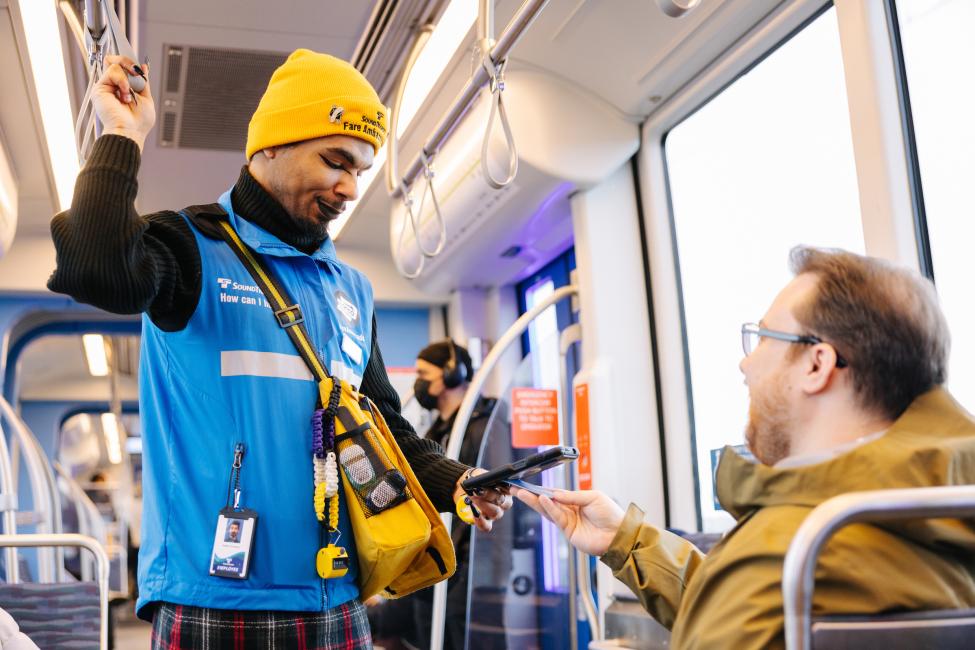In the latest step of our new approach to fare compliance, Fare Ambassadors will soon start issuing violations and civil infractions for passengers on Link, Sounder and Tacoma Link found to be riding without proof of payment.
For nearly three years, Sound Transit has been working to implement meaningful changes to our fare compliance policies and practices.
Our fare engagement program has changed:
Fare revenues are a crucial part of funding the operations of our regional system that serves all communities, including transit dependent communities.
And there are many options for free and reduced fares, including ORCA LIFT or a Regional Reduced Fare Permit (RRFP) for those who qualify. And don’t forget, youth ride free!
Here’s what’s changing:
-
Passengers start with zero warnings. Warnings issued to passengers before Nov. 15 will be removed.
-
Passengers without proof of payment will receive two warnings in a 12-month period. On the third and fourth interactions without proof of payment, riders will be issued violations that can be resolved within Sound Transit through non-monetary options, or with:
-
A $50 fine for the third violation
-
A $75 fine for the fourth violation
-
Repeat non-payment, which is five or more instances of riding without proof of payment in a 12-month period, will result in a civil infraction, which may be referred to the district court.
-
Passengers who are found to be riding without proof of payment will be required to provide some sort of identification for tracking purposes. See our press release for the list of valid IDs. Passengers who refuse to provide any of those forms of identification will be asked to leave the train.
What is proof of payment? Basically, it means that when a Fare Ambassador comes up to you on the train, you have to show them that you have:
-
Tapped your ORCA card on a reader before boarding, or
-
Purchased a ticket, via a ticket vending machine or activated via the Transit Go Ticket app, or
-
Used a free ride ticket
No worries if you forget to tap or lose your ticket – it happens to all of us. That’s why we give warnings that vanish after one year.
If you’re confused about how to buy a ticket or how to apply for one of the reduced fare programs, our Fare Ambassadors are more than happy to help. Just look for the friendly faces and the yellow hats.
All of these changes are part of the transformation to make fare compliance more rider-centric, and more equitable. They were developed over a three-year process that included peer research and conversations with community stakeholders.
We're grateful to the individuals and groups who have challenged us to improve, and we'll continue to rely on your feedback.


